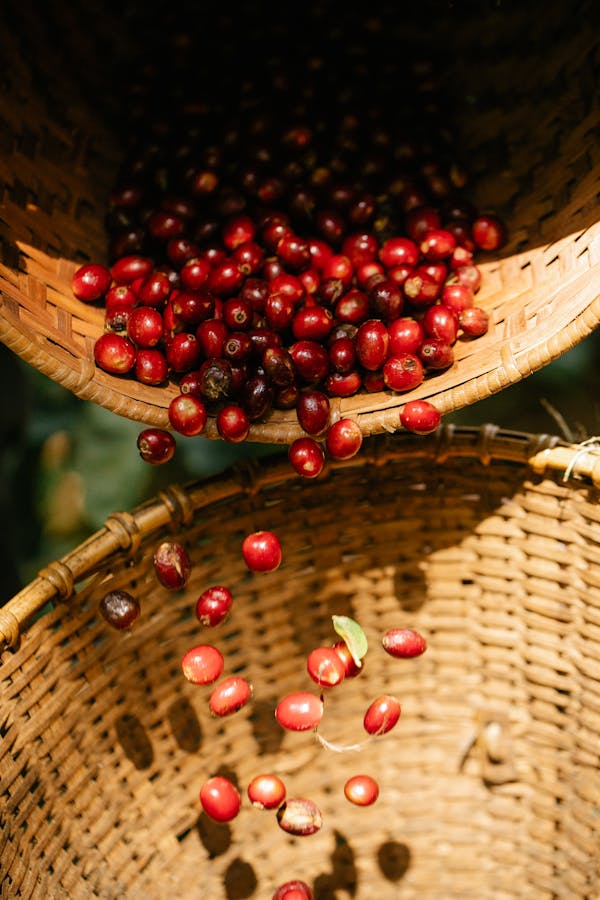Many people choose organic foods and beverages to minimize exposure to chemicals. So, naturally, they’d look for the same option with their coffee.

But the organic certification process is a large financial burden that many small farmers cannot afford. Despite this, many of them grow their coffee using organic methods anyway. For more information on organic coffee, click on Nectar of Life Coffee now!
It’s Good for You
When you choose organic coffee, you are choosing more than a cup of hot liquid. You are supporting a healthier planet and fairer trade practices. The best organic coffee also tastes better than conventional nonorganic coffee and is typically higher in healthful antioxidants.
When it comes to growing and processing, the most significant difference between organic and nonorganic coffee is that chemical pesticides are not used in either process. When pesticides are sprayed on the leaves and fruit of a coffee plant, they can transfer to the bean, which is what you drink. If you are sensitive to pesticides, even small doses can irritate your skin or cause headaches.
Farmers who grow organic coffee follow strict rules that prevent the use of synthetic fertilizers, herbicides and fungicides. These chemicals pollute the soil, water and air. Those who grow organically fertilize their plants using natural substances such as compost, chicken manure and coffee pulp. They remove weeds by using natural gas flame weeders, having animals do it or manually pulling them.
It’s Good for the Environment
Organic farmers don’t use dangerous pesticides or insecticides on their crops, which is good for both our bodies and the ecosystems of the coffee farms. These chemicals can seep into the soil and water supply, which negatively impact both local biodiversity and the health of people living nearby.
In addition, organic farming practices require the use of natural fertilizers and a careful crop rotation plan to prevent soil erosion and depletion of nutrients. Organic farming also reduces carbon emissions and sequesters more of the earth’s precious natural resources.

Additionally, many of Equal Exchange’s fair trade partners grow their coffee in the shade of forests, providing a home for wild animals and plants and helping to sustain a healthy local ecosystem. This is in stark contrast to the clearing of fragile rainforests for conventional agriculture and, with the rising demand for organic products, is a welcome trend that should continue.
It’s Good for the Growers
Organic farmers must follow a set of rules that ensure sustainability. This includes maintaining healthy soils, preserving biodiversity, and avoiding the use of synthetic chemicals like fertilizers, pesticides, herbicides, sewage sludge, and genetically modified organisms.
This is good for the environment, but it’s also a big benefit to coffee farmers around the world. Many of the 25 million smallholder farmers that grow coffee can’t afford to pay for organic certification, but they are able to sell their beans at a premium price when they are organic.
While the proliferation of sustainable certifications has led to “label fatigue” for some consumers, organic has remained one of the few segments of the industry with consistent growth and demand. The reason is clear – organic produce delivers better flavor, and that taste comes with a sense of sustainability and responsibility.
It’s Good for the Economy
Aside from the obvious health benefits, organic coffee is an excellent choice for those who care about supporting a sustainable and equitable economy. For example, many of the world’s best coffee is produced on small, family-owned farms that can ill afford to buy fertilizers and chemicals. However, if they invest in organic certification, their beans will be able to attract a larger market and command higher prices, helping them to improve their families’ lives.
To be certified organic, coffee plants must grow in partial shade, protecting the environment from deforestation and soil erosion. Additionally, coffee farmers must implement a rigorous crop rotation plan to avoid pests and nutrient depletion. Organic farming also promotes wildlife preservation and a healthy ecological balance. All of these factors help to reduce the demand for chemical-laden fertilizers and pesticides. The resulting reduction in chemical use is good for the planet and good for you, too. The difference is clear in the flavor of a cup of organic coffee.